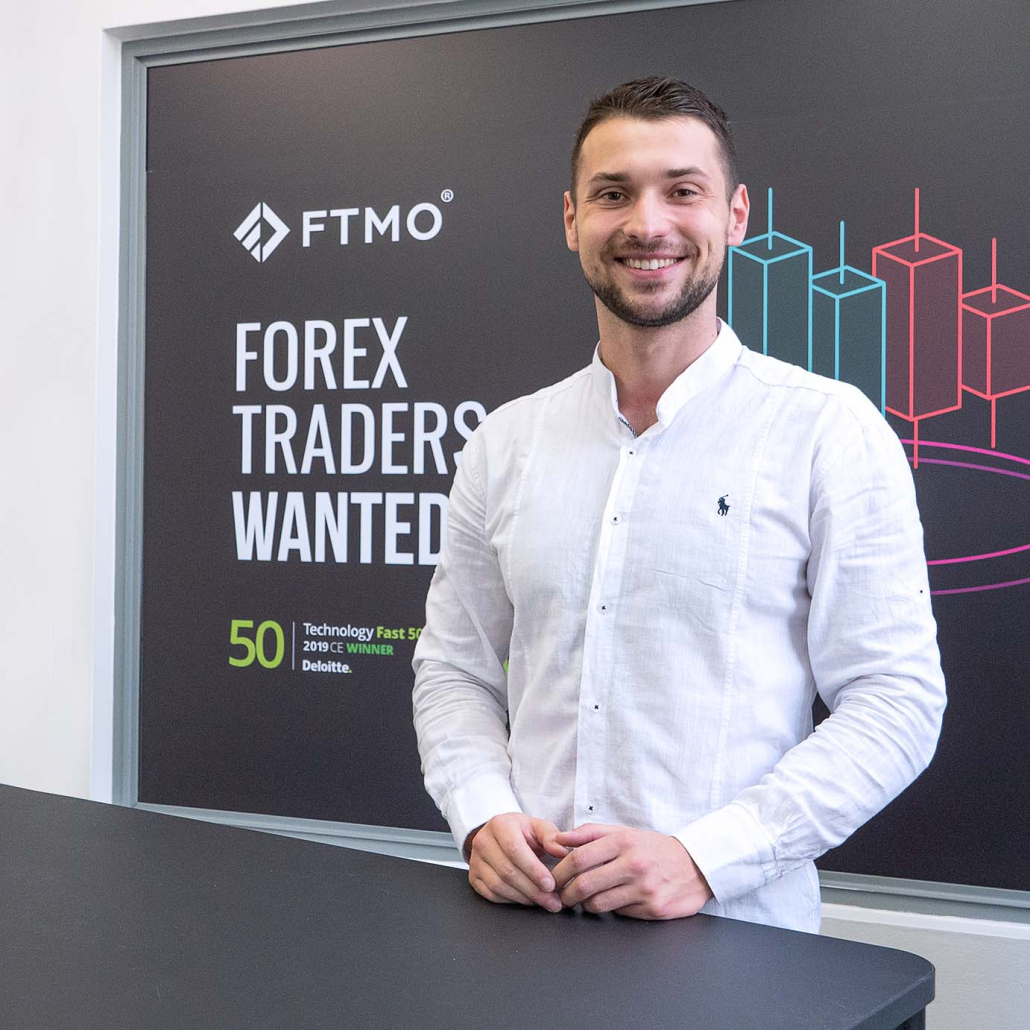
Is it worth joining a mentorship program?
Education is undoubtedly the ultimate way to get better at doing certain things. The knowledge required to become a consistently profitable trader ranges from basic financial literacy to economics and global politics. Therefore, devoting time and effort to educate yourself will inevitably bring a lot of benefits. Knowledge is a power that can be used in many ways to generate wealth. There are, however, two ways to approach education many traders choose to learn everything by themselves and there are those who select mentorship programs with the hope to speed up their way to success. In this article, we will discuss whether or not it is a good idea joining a mentorship program and how to identify a high-quality one.
Who is a mentor and what trading mentorship programs are available?
In the eyes of a student, a mentor is someone who leads the conversation, can answer all the questions, and provides in-depth training to prepare the student for any upcoming challenges in the chosen subject. A mentor can sometimes be a teacher but with a more in-depth and personal approach. In reality, not many teachers have adequate experience in the chosen field but have a solid theoretical background in the subject, and this is the reason why many people choose to have a mentor as a mentor is mostly perceived as someone who has succeeded in a particular field and can provide not only theoretical knowledge but also experience-based knowledge that can benefit the student in many ways. For example, instead of making the same mistakes as the mentor was making at the beginning of their journey, the student may learn from those mistakes, thus advancing their skills even beyond the mentor.

We can find countless trading mentorship programs and trading gurus who claim to be the best in their field to sell you the course/mentorship program on the internet nowadays. The mentorship programs are often based on trading concepts derived from the pioneers of technical analysis in trading from its early ages such as Dow, Hamilton, Rhea, Gould, Magee, and Wyckoff. There are even modernized concepts such as Smart Money Concept (SMC), Inner Circle Trading (ICT), and so on. These concepts are mostly based on a simple concept of supply and demand with slight changes in the specifications and fundamental details of the market. While there are traders who would swear by the mentorship programs they have attended and their mentors, however, little evidence has been gathered to prove the effectiveness of each concept with a thorough track record.
The price for each mentorship program may vary depending on the seller of the program. It may range from just $5 up to tens of thousands of dollars. Of course, mentorship programs and courses in the higher range of prices are not accessible by the wide public and may require affiliate links or a referral to access them. Although these types of programs are of high value, it does not necessarily mean that they are of high quality and they do not provide a guarantee that the student will succeed in the chosen field.
Why do novice traders search for mentors?
There are many reasons why traders search for mentors. One of the main reasons is the desire to get better and to improve within the shortest amount of time and effort. However, getting a mentor could be a double-edged sword. If you get a quality mentor, your skills and knowledge will undoubtedly be enhanced. On the other hand, if you choose an unqualified one, not only are you wasting your hard-earned money but also your precious time. The good news is that it is possible to find a quality mentor, and getting one at every stage of your trading journey is necessary. Even the top-performing traders require mentorship from time to time, for example, a performance coach to help them with their psychology or mentoring from senior economists/analysts to discuss market fundamentals.

Just like in sports, high-performing athletes need mentors to keep their mental health, psychology, and overall performance in check. These mentors are also considered coaches as there is little difference between those two. Therefore, it is needless to say that not only novice traders seek quality mentors, but also professionals need mentors. Some may argue that getting a high-quality mentor may be easier for professionals as they have the contacts and resources to obtain one. However, it is far from the truth that novice traders cannot get a high-quality mentor at a reasonable cost.
How to recognize a high-quality mentor?
In the current era of the world wide web, there are numerous available mentorship programs, trading coaches, trading courses, and so on. Some like to show off their achievements in terms of materialistic things such as supercars, flashy lifestyles, and pictures of cash. Although sometimes the reality can be that the materialistic things are not even the results of their trading as they tend to claim. It is important to stay vigilant and know that when something is too good to be true, most of the time it is not. There is nothing wrong with showing off, however, when there is a service related to it, it is probably a marketing stunt to make you believe that you will also achieve the same by joining the program.

Fortunately, some legitimate mentors and coaches have the necessary experience and expertise to teach you and walk you through the process. Generally, 3 pillars should be checked before making the decision whether to join the program or not.
Knowledge
The first of the pillars is knowledge. To confirm whether the mentor you are choosing is knowledgeable, there may be some specific topics of the field that you can ask to confirm whether the mentor is the one with the correct knowledge. Of course, if you are completely new to trading, and you have not done any research before it, you are exposing yourself to the risk of being manipulated and provided with the wrong information. Once you keep this in mind, before you make any decisions, you will assess the risks and rewards associated with it.
Experience
The second pillar that you need to look at is, without a doubt, the experience. How long the mentor has been in the industry can be proven by his track record. However, be mindful that literally everything can be falsified nowadays, therefore, staying cautious is a must. As mentioned above, people tend to associate materialistic things and flashy lifestyles with the job. Some mentors would claim that they have gotten the new Lamborghini from trading when, in reality, the truth is elsewhere. In trading, a well-proven track record can be considered a Myfxbook account connected to a live account as most brokerage accounts can be connected to a Myfxbook profile.
Qualification
Third, is the qualification. Does the mentor have a relevant educational background? Some might say a degree is just a piece of paper, however, most of the professional traders on Wall Street have at least a Bachelor’s degree in Finance, Economics, Data Analytics, Computer Science, or Mathematics. Some traders at brokerage companies are even required by law to have a license or certification to be able to operate in the finance industry. Therefore, qualification is one of the key things to search for when acquiring a mentor.
FTMO Performance coach

At FTMO, we strive to provide the best services and assistance to our traders. This is the reason there is a performance coach available once per month for our FTMO Traders, completely free of charge. Michael, our main performance coach, graduated from Charles University with a master’s degree in Psychology.
He has opted for certified training in psychodynamic coaching as a part of his forthcoming education in psychology. This indicates that in the coaching process, he may delve deeper into the subject matter, if necessary. Additionally, he specialises in aviation psychology.
Rest assured, you are conversing with someone who comprehends the struggle. Michael employs his fundamental skills, knowledge, and experience as a coach to support you in achieving your desired objectives. He approaches each trader on an individual basis, whether you require immediate resolution for a persistent problem or aim to maximise your trading strategy. Together, you will establish your goals and determine the optimal solution for your circumstances. For more information, feel free to read an article found under the following link.
Conclusion
Learning to trade is just like learning a new skill. It requires hours, days, months, and even years of study to master the craft. Getting a mentor will not solve all your problems nor make you the master in your chosen field. However, a quality mentor should be able to answer all your relevant questions and provide you with guidance to set you on the right path. Before searching for a mentor, it is necessary to have goals defined to know what you want to achieve. At every stage of your journey and for every subject within the scope of trading, some coaches and mentors can help you achieve your goals.
So, to answer the question of whether it is worth joining a mentorship program, the answer is definitely yes. Joining a mentorship program can bring a lot of benefits, however, staying cautious about the quality of the program or mentor is a must. There are limitless types of mentorship programs and coaches available online. The only obstacle is the time devoted to the research of the mentorship program and its quality. Therefore, if there is a coaching program offered by a reputable company, the quality of the coach is undoubtedly guaranteed. On the other hand, if you set your step on the path of a trader, be ready for a lot of self-study and willingness to devote your time every day.
About FTMO
FTMO developed a 2-step Evaluation Process to find trading talents. Upon successful completion you can get an FTMO Account with a balance of up to $200,000. How does it work?.





